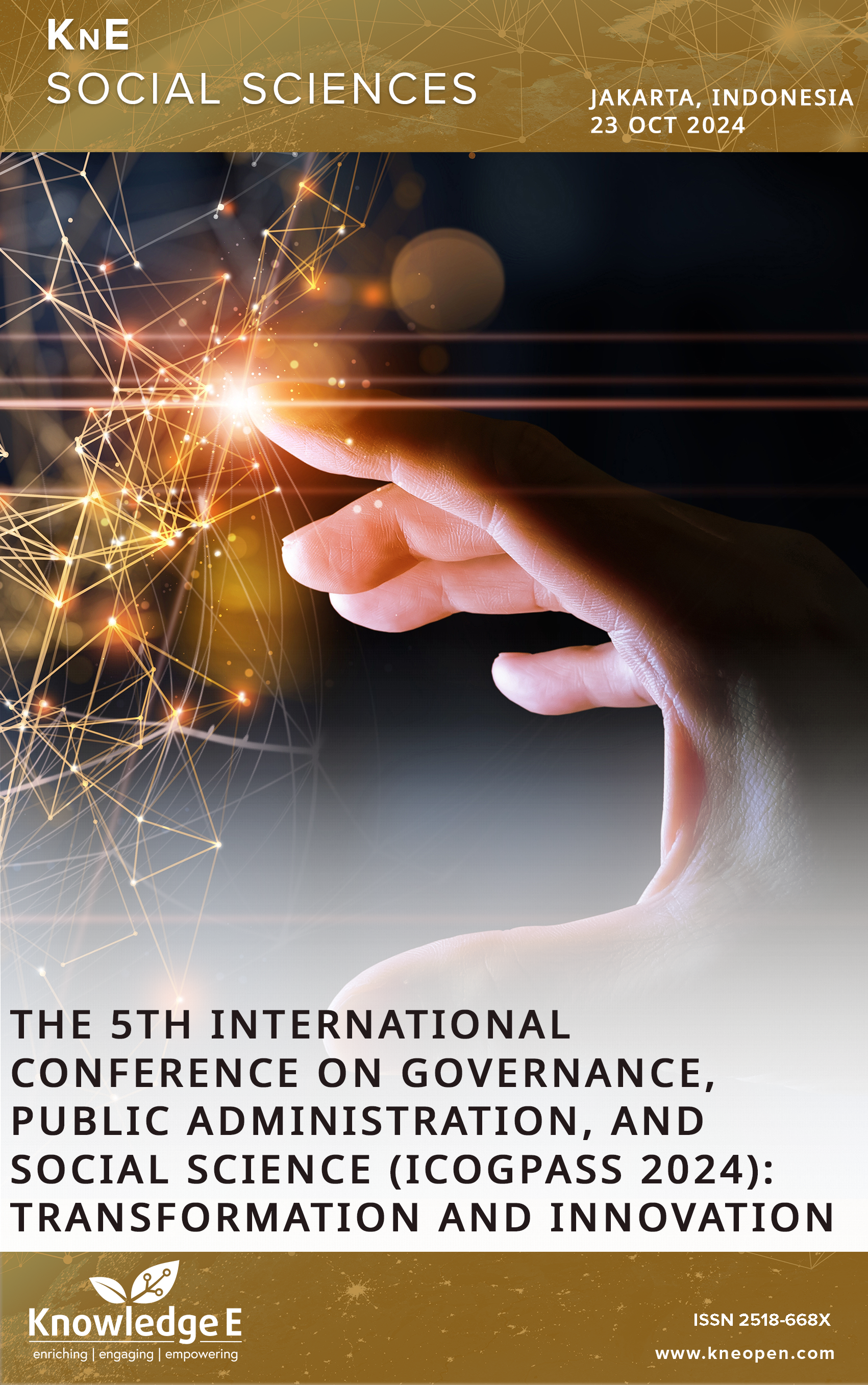Enhancing Digital Presence: The Role of Website Content Quality in the Sustainability of Tourism Villages
DOI:
https://doi.org/10.18502/kss.v10i16.19185Keywords:
website content quality, sustainable tourism villageAbstract
Rural tourism has enormous potential to benefit the rural economies, the environment, and local communities. Rural tourism, including village tourism, can serve as an effective tool for fostering and sustaining development in rural areas. In recent years, the connection between tourism and sustainability has received increased attention, particularly in tourist villages, due to their natural appeal and environmental frameworks that support this type of tourism. Research shows that 80% of travelers regularly use websites to plan their trips. Digital platforms enable tourists to access comprehensive information about destinations, including costs, facilities, locations, accessibility, surrounding amenities, and transportation options. This study aims to analyze the role of website content quality in supporting the sustainability of tourist villages, focusing on two tourist villages in West Java Province. The findings demonstrate that village websites primarily function as communication tools between tourist village managers and tourists. However, their effectiveness is often limited by human resource constraints and technical challenges. The study also indicates that social media provides a more manageable communication and promotional platform for village managers, many of whom prefer direct engagement through these channels.
References
[1] Clarke EM, Emerson EA. Design and synthesis of synchronization skeletons using branching time temporal logic, in: D. Kozen (Eds.), Workshop on Logics of Programs, Lecture Notes in Computer Science, vol. 131, Springer, Berlin, Heidelberg, 1981, pp. 52–71.
[2] Queille JP, Sifakis J. Specification and verification of concurrent systems in CESAR, in: M. Dezani-Ciancaglini and U. Montanari (Eds.), Proceedings of the 5th International Symposium on Programming, Lecture Notes in Computer Science, vol. 137, Springer, Berlin, Heidelberg, 1982, pp. 337–351.
[3] Baier C, Katoen JP. Principles of Model Checking. MIT Press; 2008.
[4] Kwiatkowska M, Norman G, Parker D. Stochastic model checking, in: M. Bernardo, J. Hillston (Eds.), Proceedings of the Formal Methods for the Design of Computer, Communication and Software Systems: Performance Evaluation (SFM), Springer, Berlin, Heidelberg, 2007, pp. 220–270. https://doi.org/10.1007/978-3-540-72522- 0_6.
[5] Forejt V, Kwiatkowska M, Norman G, Parker D. Automated verification techniques for probabilistic systems, in: M. Bernardo, V. Issarny (Eds.), Proceedings of the Formal Methods for Eternal Networked Software Systems (SFM), Springer, Berlin, Heidelberg, 2011, pp. 53–113.
[6] Penna GD, Intrigila B, Melatti I, Tronci E, Zilli MV. Bounded probabilistic model checking with the muralpha verifier, in: A.J. Hu, A.K. Martin (Eds.), Proceedings of the Formal Methods in Computer-Aided Design, Springer, Berlin, Heidelberg, 2004, pp. 214–229.
[7] Clarke E, Grumberg O, Jha S, et al. Counterexample-guided abstraction refinement. In: Emerson EA, Sistla AP, editors. Computer Aided Verification. Berlin, Heidelberg: Springer; 2000. pp. 154–69.
[8] Barringer H, Kuiper R, Pnueli A. Now you may compose temporal logic specifications, in: Proceedings of the Sixteenth Annual ACM Symposium on the Theory of Computing (STOC), ACM, 1984, pp. 51–63.
[9] Pnueli A. In transition from global to modular temporal reasoning about programs. In: Apt KR, editor. Logics and Models of Concurrent Systems. Berlin, Heidelberg: Springer; 1984. pp. 123–44.
[10] Meyer B. Applying “Design by Contract”. Computer. 1992;25(10):40–51.
[11] Bensalem S, Bogza M, Legay A, Nguyen TH, Sifakis J, Yan R. Incremental component-based construction and verification using invariants, in: Proceedings of the Conference on Formal Methods in Computer Aided Design (FMCAD), IEEE Press, Piscataway, NJ, 2010, pp. 257–256.
[12] Barringer H, Pasareanu CS, Giannakopolou D. Proof rules for automated compositional verification through learning, in Proc. of the 2nd International Workshop on Specification and Verification of Component Based Systems, 2003.
[13] Bobaru MG, Pasareanu CS, Giannakopoulou D. Automated assume-guarantee reasoning by abstraction refinement, in: A. Gupta, S. Malik (Eds.), Proceedings of the Computer Aided Verification, Springer, Berlin, Heidelberg, 2008, pp. 135–148.
Published
How to Cite
Issue
Section
License
Copyright (c) 2025 Murtafia, Asrini A. Saeni

This work is licensed under a Creative Commons Attribution 4.0 International License.

